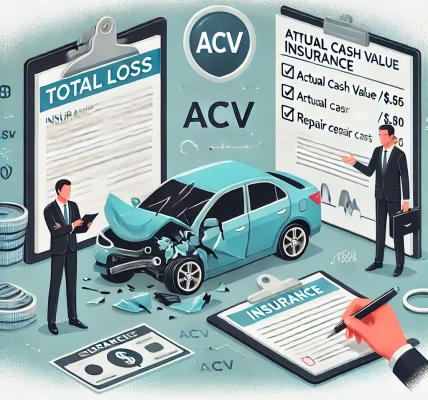Filing an insurance claim can be a daunting process, especially when you are uncertain about how long it will take to receive your payout. The timeline for an insurance claim varies based on the type of insurance, the complexity of the claim, and how efficiently you provide the necessary documentation. In this guide, we will break down the insurance claim process, common timelines, and what you can do to speed up the process.
Understanding the Insurance Claim Process
Step 1: Reporting the Claim (1-7 Days)
The first step in any insurance claim is reporting the incident to your insurer. The sooner you notify them, the quicker the process can begin. Most insurance companies require you to report a claim within a specific timeframe, often within 24-48 hours for certain types of policies.
Step 2: Claim Acknowledgment and Documentation Request (5-10 Days)
Once your claim is reported, the insurance company will acknowledge it and provide you with a list of required documents. These may include:
- Claim forms
- Incident reports (for auto or home insurance claims)
- Medical records (for health insurance claims)
- Repair estimates or invoices (for property claims)
- Police reports (for accidents or theft-related claims)
Step 3: Investigation and Assessment (10-30 Days)
This is the most time-consuming phase, as the insurer assesses the claim’s validity. Depending on the complexity, the insurance adjuster may:
- Review documents and statements
- Conduct interviews
- Inspect damaged property (for home, auto, or business claims)
- Verify medical records (for health or life insurance claims)
Some straightforward claims may be processed within a few days, while others, particularly those involving liability investigations or extensive damage assessments, may take weeks.
Step 4: Claim Decision and Payout Offer (10-60 Days)
Once the investigation is complete, the insurance company will approve or deny your claim. If approved, they will offer a settlement amount.
- Simple claims (e.g., minor health reimbursements or auto repairs) may be resolved in 10-14 days.
- Complex claims (e.g., total loss of a home, severe injury claims) can take 30-60 days or longer.
- Some states have legal deadlines requiring insurers to respond within a set timeframe, such as 30 days.
Step 5: Negotiation or Appeal (Variable Timeline)
If you disagree with the insurer’s decision or settlement amount, you can negotiate or appeal. This process can add weeks or months to the timeline, depending on the complexity and whether legal assistance is required.
Step 6: Payment Processing (5-14 Days)
Once the claim is approved and agreed upon, the insurer processes the payment. Many companies offer direct deposits, which can speed up the payout time.
Typical Claim Timelines by Insurance Type
| Type of Insurance Claim | Estimated Processing Time |
|---|---|
| Auto Insurance | 7-30 days |
| Health Insurance | 7-45 days |
| Homeowners Insurance | 14-60 days |
| Business Insurance | 30-90 days |
| Life Insurance | 30-60 days |
Factors That Can Delay an Insurance Claim
- Incomplete Documentation: Missing or incorrect paperwork can stall the process.
- Disputes Over Liability: If there is uncertainty about fault, the claim may take longer.
- High Claim Amounts: Larger payouts require more scrutiny and verification.
- Fraud Investigations: If fraud is suspected, an in-depth investigation may be required.
- Third-Party Involvement: Claims involving multiple parties, such as auto accidents, can take longer.
Pro Tips to Speed Up the Insurance Claim Process
- Report the claim immediately to start the process early.
- Double-check your documents before submission to avoid delays.
- Follow up regularly with your insurance company to keep things moving.
- Work with an insurance agent or public adjuster for complex claims.
- Keep detailed records of all communications and submitted paperwork.
Final Thoughts
Understanding the typical timelines and potential roadblocks can help you manage expectations and navigate the claims process more efficiently. While some claims are resolved within days, others take months. By being proactive and organized, you can help ensure a faster, smoother insurance claim experience.



